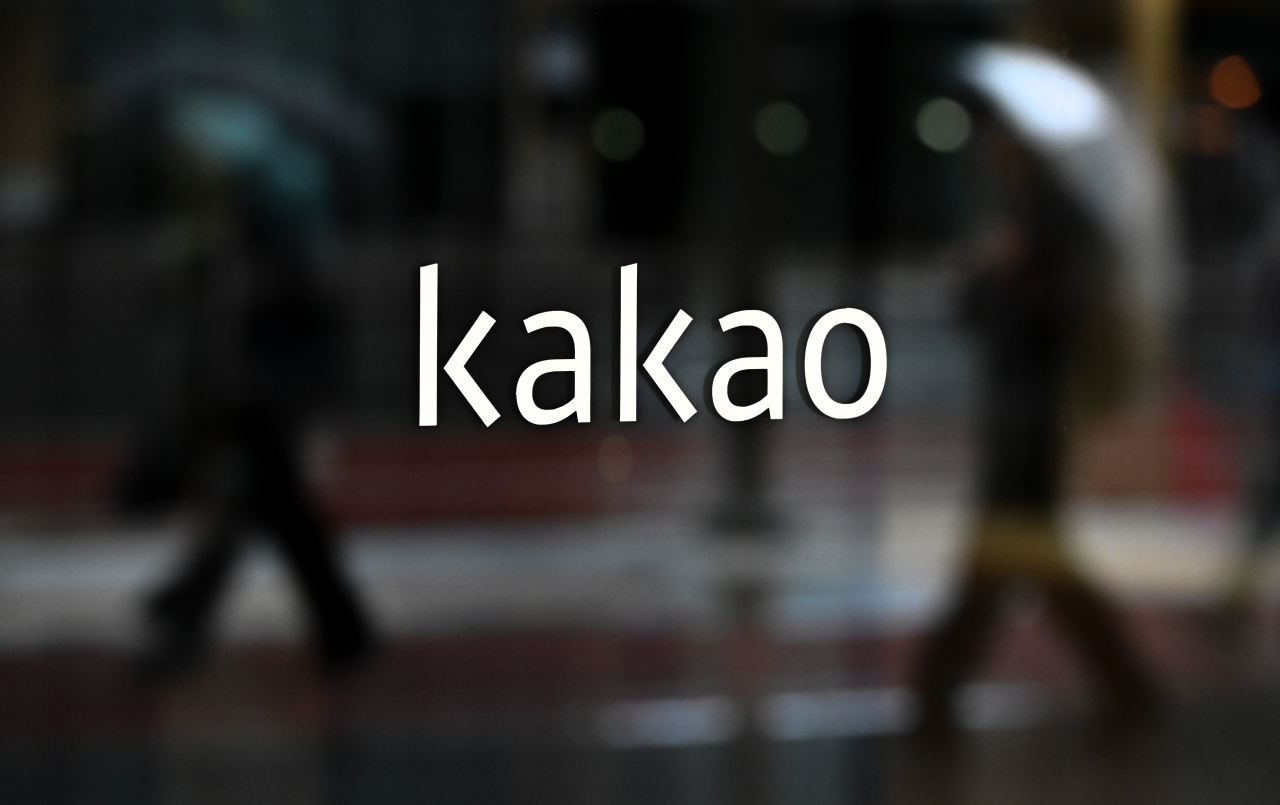 |
Kakao's logo is seen at the company's Pangyo headquarters in Seongnam, Gyeonggi Province. (Im Se-jun/The Korea Herald) |
The ongoing legal risks surrounding Kakao Corp. seem to be eating into subsidiaries' plans for global expansion, with a series of acquisition deals toppled recently.
Kakao Mobility's stock purchase deal with German taxi-hailing service provider FreeNow has reportedly fallen through, with the two companies failing to come to a consensus on the final conditions.
Kakao Mobility has been seeking to acquire about 80 percent of FreeNow, Europe's largest taxi-hailing platform, and the Korean firm submitted a preliminary bid proposal last month. The original price proposed by FreeNow and settled by the Kakao subsidiary is estimated to be around 300 billion won ($232 million) to 400 billion won.
But Kakao's internal investment review committee recently judged the price as being too high and reportedly rejected the original plan, according to industry sources.
"The committee rejected the acquisition because the price didn't meet (Kakao's expectations). But we are aware that Kakao Mobility still wants to acquire FreeNow," a Kakao official familiar with the situation told The Korea Herald.
Kakao Mobility proposed a new bid earlier this month to FreeNow, to which the German firm gave negative feedback, bringing the talks to a halt, local reports conveyed. While industry insiders presumed the deal dead, especially as the original final bid deadline had been set for around three weeks ago, Kakao Mobility denied the notion, saying talks were ongoing.
"The FreeNow acquisition has not ended yet. There was no deadline set in the first place. We're still negotiating on the details and writing out contract drafts," a Kakao Mobility official said.
About the review committee's decision, the same official denied that any member of the review committee has the right to veto the acquisition deal.
"Words say that new CEO Chung Shin-a rejected the plan but we assume it all comes from the hype surrounding her appointment," the Kakao Mobility official said. "Although I'm not sure what exactly came up at the committee meeting, I believe it wasn't all about the price being too expensive but more about focusing the deal on certain countries and how to operate the product post-acquisition."
Sources say that Chung, the new CEO nominee, suggested the mobility unit change the conditions of the acquisition deal to target only certain cities and countries with high demand from tourists.
FreeNow, founded in 2009 in Hamburg, Germany, has an 83 percent market share in Europe's taxi-hailing market and operates in 170 cities across 11 countries, including the UK, France, Spain and Italy.
The suspension in Kakao Mobility's Europe push follows yet another crash in an acquisition deal by a Kakao subsidiary last week.
Kakao Pay on Dec. 20 announced it was terminating its stock purchase deal with US brokerage firm Siebert Financial. The online payment company was set to extend its 19 percent stock ownership of the New York-based brokerage to 51 percent next year, but the deal was canceled after Siebert decided it was too risky amid a lingering management crisis at Kakao.
Last month, Kakao's Chief Investment Officer Bae Jae-hyun was indicted after being arrested on charges of manipulating the stock of local K-pop juggernaut SM Entertainment. Kakao founder Kim Beom-su and then-CEO Hong Eun-taek were summoned for questioning concerning the case.
Kakao Mobility also faces an ongoing probe over an alleged monopoly in the nation's taxi-hailing industry. In February, Kakao Mobility was fined 25.7 billion won by the Fair Trade Commission for prioritizing its franchise taxis over other cabs when issuing assignments through algorithm manipulation. Kakao protested, filing a suit to cancel the fine, and remains in a legal battle with the FTC.
The mobility company is also undergoing investigations by financial authorities for alleged accounting fraud.
Experts warn that Kakao's management risk is taking a toll on its plans to expand its global business. Under the "Beyond Korea" initiative, the tech giant has been seeking overseas partnerships and expansion to increase its proportion of sales from overseas businesses to 30 percent by 2025, up from the current 20 percent.
"Merger and acquisition deals aren't all about business potential and such legal risks make the foreign companies wary about the uncertainties lying ahead if such deals come through," said Wi Jong-hyun, a business professor at Chung-Ang University.
"The biggest problem for Kakao here is its toxic market domination. For Kakao to overcome this, it must head outbound, with affiliates such as Mobility, Entertainment, Pay and Bank helming the moves. But now that option also sees a bleak outlook," Wi added.
Lee Min-hwan, a professor of global finance and banking at Inha University, also predicted that the situation is likely to worsen for Kakao.
"It's the business model that is at the core of the problem. Kakao has been following the path of other conglomerates here, diversifying businesses hastily and committing unethical acts in the process. Even if the affiliates are operated independently, complete autonomy from the parent company is impossible," Lee said.
"If Kakao fails to control (concerns) rising from its actions until now, further deals with foreign companies will not be easy."




![[Weekender] Korea's traditional sauce culture gains global recognition](http://res.heraldm.com/phpwas/restmb_idxmake.php?idx=644&simg=/content/image/2024/11/21/20241121050153_0.jpg)


